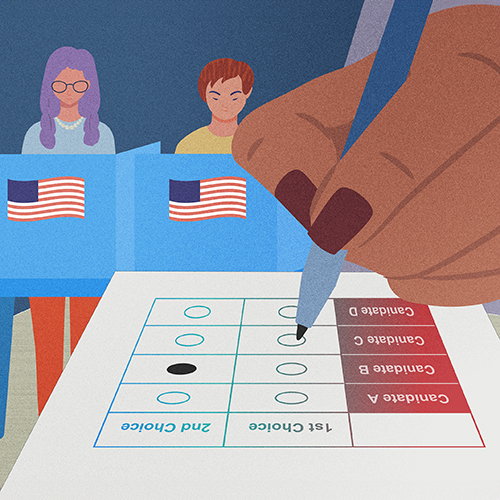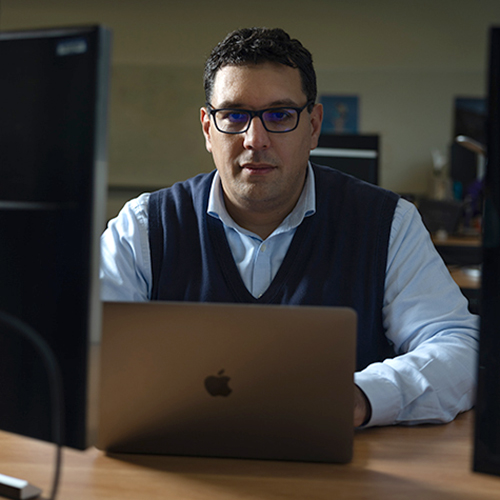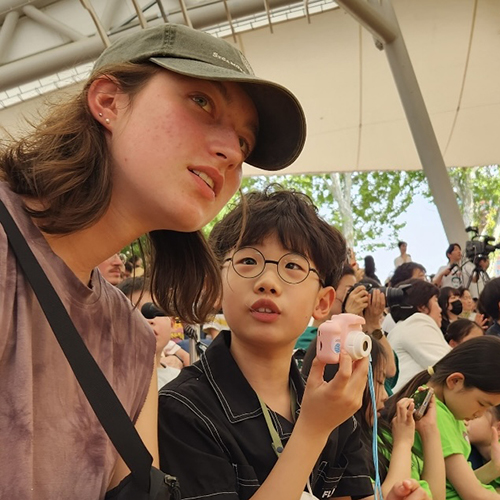
People of color and women have historically been underrepresented in STEM, and particularly in mathematics. Departments and programs at the University of Washington are taking steps to change that through mentorship and networking, which have shown promise in improving racial and gender diversity in workplaces as well as helping employees feel more satisfied in their careers.
For students in math-related fields, the Math Alliance, a national mathematics mentorship and networking organization, serves that role. UW departments and programs have now enhanced their involvement in the Math Alliance.
“The Math Alliance's main goal is to demystify the prospect of graduate school for students of all backgrounds majoring in the mathematical sciences as undergraduates,” says Bernard Deconinck, chair of Applied Mathematics. “The Alliance helps these students through mentoring and networking: The students are paired with mentors who work with them to prepare their graduate school materials, and connect with Math Alliance alums and representatives from graduate programs around the country.”
Making STEM More Inclusive
For many students interested in STEM, barriers start long before they land their first job. According to a Pew Research report on gender and racial diversity in STEM published in April 2021, “Black and Hispanic adults are less likely to earn degrees in STEM than other degree fields, and they continue to make up a lower share of STEM graduates relative to their share of the adult population.” And what progress has been made is uneven — for instance, Black people haven’t seen an increase in access to STEM careers since 2016.
The same Pew Research report notes that while women make up a majority of health-related STEM graduates, the numbers are much lower in other areas, particularly computer science, engineering, and math: “In math, 42% of bachelor’s and 36% of master’s degrees were earned by women; just 25% of math research doctorates were earned by women in 2018.”
The Math Alliance's main goal is to demystify the prospect of graduate school for students of all backgrounds majoring in the mathematical sciences as undergraduates.
But it doesn’t have to be that way. A 2019 survey of graduate students found that “female and minority graduate students published the same number of papers as their white male peers when they felt accepted by their mentors and peers, had clear departmental expectations, and felt prepared for their graduate classes.”
There’s a lot more work to do to make STEM careers and the academy more inclusive, but it can be done. There’s also a lot that can be done to help undergraduate students studying math learn about their graduate school options and resources available to them, according to Deconinck. “Most do not realize that attending a PhD program very often comes with funding,” he says. And because of that, many promising students don’t think attending a graduate program is feasible or attainable for them.
The Math Alliance is working to change all of that. Launched in 2001 as a partnership between four HBCUs (Alabama A&M University, Benedict College of South Carolina, Florida A&M University, and Jackson State University) and three Iowa Universities (Iowa State University, the University of Iowa, the University of Northern Iowa), the Math Alliance quickly spread. In the last decade, the organization has expanded to colleges and universities across the country and is now in 380 schools, with over 1,200 mentors.
Math Alliance at the UW
While this isn’t the first time the Math Alliance has come to the UW — there have been some departments with varying levels of engagement in the program — the organization will now be in more UW programs, departments, schools, and colleges than ever before. At last count, the UW had more Math Alliance mentors than any other school in the nation.
Four mathematical sciences departments (Applied Mathematics, Biostatistics, Mathematics, and Statistics) are spearheading the UW’s partnership with the Math Alliance. That’s on top of the other eight departments and programs participating (Aeronautical and Astronautical Engineering, the Allen School of Computer Science & Engineering, Astronomy, Biomedical Information and Medical Education, CHOICE, Economics, Mechanical Engineering, and Physics). All in all, the Math Alliance will now be in five UW colleges and schools.
“Broadening representation, making everyone feel welcome, and creating a climate where people from all backgrounds can thrive is a top priority of the UW,” said Daniel Pollack, divisional dean of the Natural Sciences. “The partnership of four Mathematical Science departments to lead this effort, and the participation of many other departments from across the University, is reflective of our deep commitment to this work.”
Broadening representation, making everyone feel welcome, and creating a climate where people from all backgrounds can thrive is a top priority of the UW.
The UW’s primary Math Alliance program, the Facilitated Graduate Applications Process (or F-GAP), assists students in every step of approaching, completing, and tracking graduate school applications. In addition, the Math Alliance offers conferences, workshops, discussions, and networking opportunities.
“All of these departments are interested in bringing talented nontraditional and underrepresented students with strong mathematical backgrounds to their graduate programs,” says Deconinck. “We hope more departments will join!”
Students interested in pursuing a graduate degree in a field benefitting from a math undergraduate degree can get involved by talking to a Math Alliance mentor (if you already know one) or by emailing mathalliance@purdue.edu.
More Stories

Democracy by the Numbers
Mathematics and Democracy, an undergraduate mathematics course, explores the role of math in many aspects of democracy, from elections to proportional representation.

A Statistician Weighs in on AI
Statistics professor Zaid Harchaoui, working at the intersection of statistics and computing, explores what AI models do well, where they fall short, and why.

Finding Family in Korea Through Language & Plants
Through her love of languages and plants — and some serendipity — UW junior Katie Ruesink connected with a Korean family while studying in Seoul.
